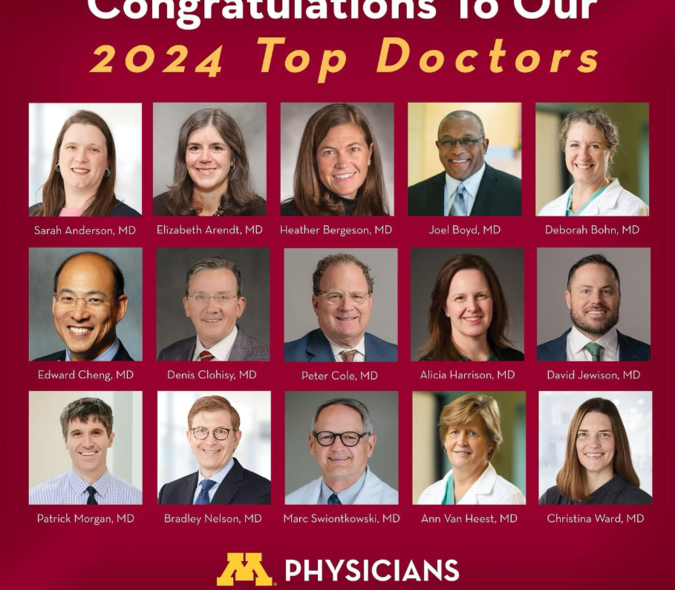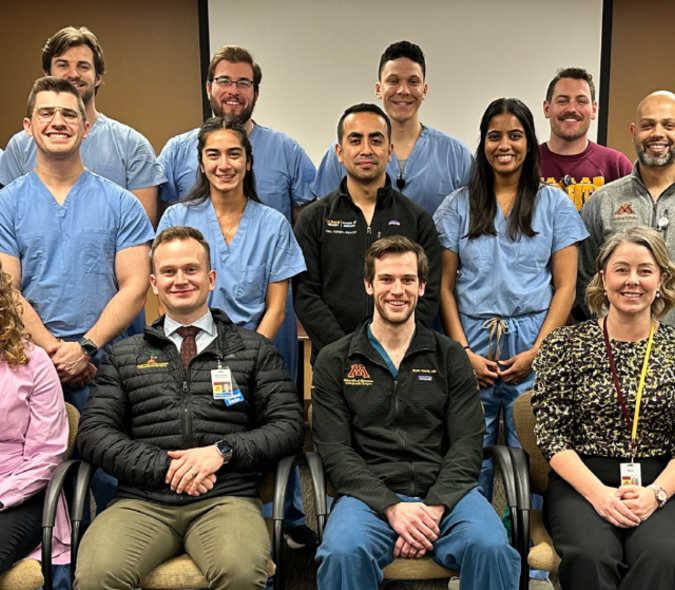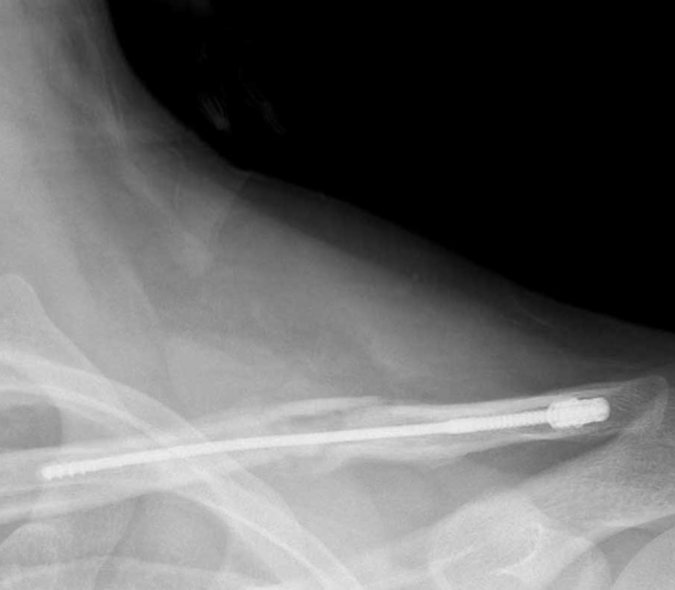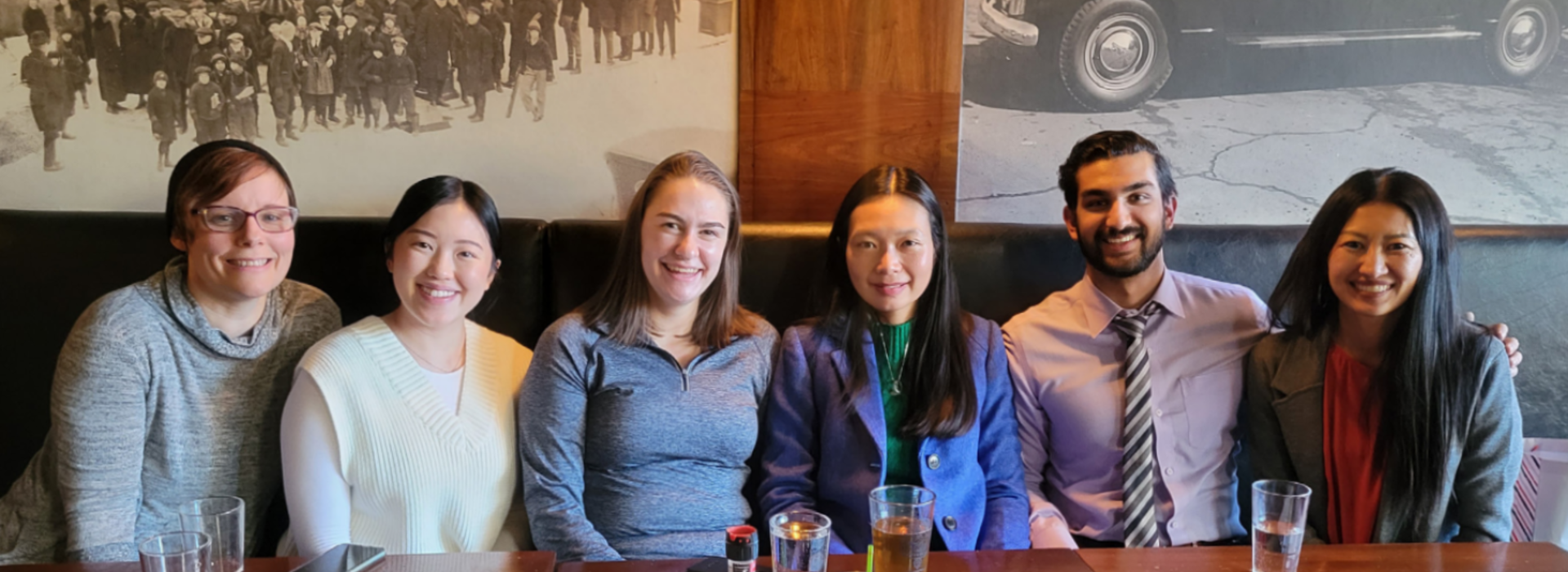
Dr. Mai Nguyen Champions Patient-Centered Approach, Crafting Research Based on Patient Questions
With a dedicated focus on addressing the multifaceted needs of patients grappling with musculoskeletal injuries, Dr. Mai Nguyen personifies the Department of Orthopedic Surgery’s mission of merging clinical expertise with groundbreaking research. Her passion for advancing orthopedic care not only enriches the lives of individual patients and their loved ones, but also paves the way for transformative scientific developments that may very well reshape the landscape of orthopedic care in the years to come.
The Motivation
Dr. Nguyen’s journey into research alongside her clinical practice was not a predetermined path, but rather a response to the needs she regularly encountered in her day-to-day practice. With little to no formal training in research throughout medical school and residency, Nguyen found herself turning to existing research to improve her patient consultations in the early stages of her practice.
While seasoned practitioners can draw upon years of professional experience to guide their patient consultations, Nguyen, with relatively fewer years in
practice, often resorted to literature and research as a source of guidance and assurance. This reliance on trusted resources not only bolstered her confidence, but also enabled her to provide the highest standard of care for her patients.
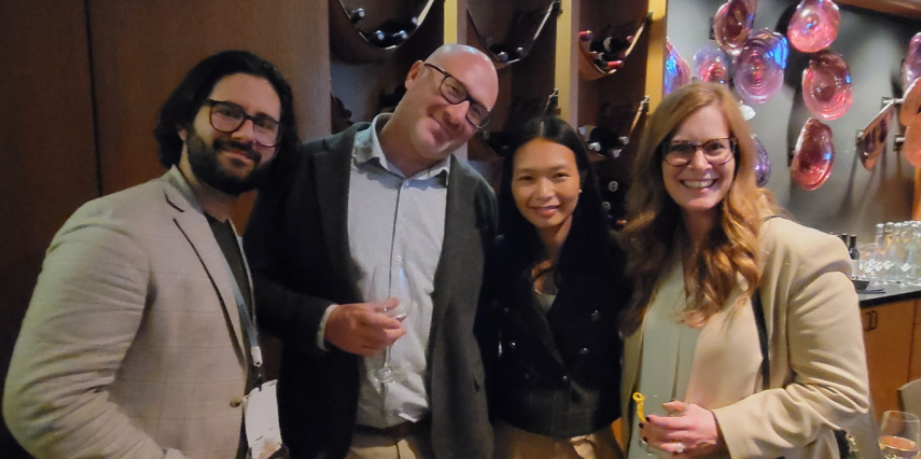
The intrinsic reward of research for Nguyen lies not only in its potential to impact her immediate patient population, but also in its capacity to effect broader change within the medical community.
She reflects, “When I do a really good research project and disseminate that data or information to other physicians, surgeons, and patients, then all of a sudden, I can have thousands and even hundreds of thousands of patients using that information to the benefit of their care.”
Supporting Research Literacy
To further support her interest in research initiatives, Dr. Nguyen took on the role of Resident Research Advisory Panel Director within the University of Minnesota’s Department of Orthopedic Surgery in 2020. At the heart of her decision to accept this role was her belief in the indispensable link between research literacy and clinical competence.
“A critical portion of clinical practice is to be able to correctly identify the problem, interpret and apply evidence, deduce what you’re reading, and finally apply it to the clinical practice,” she explains.
Recognizing research proficiency as an essential skill set for aspiring clinicians, Nguyen sees the role as an opportunity to bridge the gap between theoretical knowledge and practical application.
This multifaceted leadership role involves defining G1 research curriculum, meticulously monitoring project progress, reviewing proposals, and identifying opportunities for G1 resident development. Nguyen collaborates closely with Education Research Coordinator Ali Odenthal, MPH to align program objectives with departmental goals, ensuring the seamless integration of research into the residency training curriculum.
A Patient Centered Approach
Dr. Nguyen approaches all of her research projects with a dual-purpose mindset. In her view, the primary aim of any project is to delve deep into the subject matter, uncover valuable insights, and evaluate different methodologies to identify the most effective approaches. However, her vision extends beyond academia; she is equally focused on the practical application of her findings to improve clinical care and enhance patient outcomes.
One such way to enhance patient outcomes, she finds, is by involving patients in the research process. Reflecting on her approach, Nguyen notes that traditional research methods have often been conceived within the confines of academic settings, with researchers devising study designs based on their expertise and interests, without much mind to patient questions. However, in her practice, Nguyen has observed that research takes on a more meaningful and practical dimension when patients are integral participants in the process, from the very start.
Nguyen believes that the foundation of impactful research lies in addressing the clinical questions that patients themselves are asking. For her, patient-centered research isn’t just a methodological approach; it’s a guiding principle that shapes the entire research process.
Drawing from her experiences, Nguyen highlights the invaluable contribution of patient co-investigators in refining research protocols and procedures.
In one particular instance, Nguyen reflects, “My patient co-investigator identified that the words I use to talk about surgery and clinical research may be difficult to understand for patients with no medical background.”
Using this insight, a collaborative effort was born to revise and simplify the language used in consultations, ensuring that it resonates more profoundly with patients.
Nguyen also stresses the significance of such collaborative efforts in alleviating the apprehensions and confusion often associated with patient research participation. “Having a patient co-investigator can help bridge the gap between the clinician’s perspective and the patient’s perspective,” she observes.
By creating a more inclusive and accessible approach that involves patient insight, she has witnessed a tangible increase in patient participation and enrollment across several clinical trials.
Ongoing Grants & Related Projects
Inspired by the valuable perceptions gleaned from patients, Dr. Nguyen has developed a keen interest in exploring the intersection of mental health, social support, and surgical recovery—an interest that led her to apply for a prestigious grant from the Patient-Centered Outcomes Research Institute (PCORI) in 2023. Nguyen has collaborated closely with two patient co-investigators, alongside a collaborative, multidisciplinary team from the University of Minnesota and the Health Partners Research Institute (HPRI) to refine and develop a research focus for this grant.
“I get a lot of input from patients who believe that in order to recover properly from surgery, they feel they would benefit from mental health and social support, beyond physical rehabilitation,” Nguyen explains.
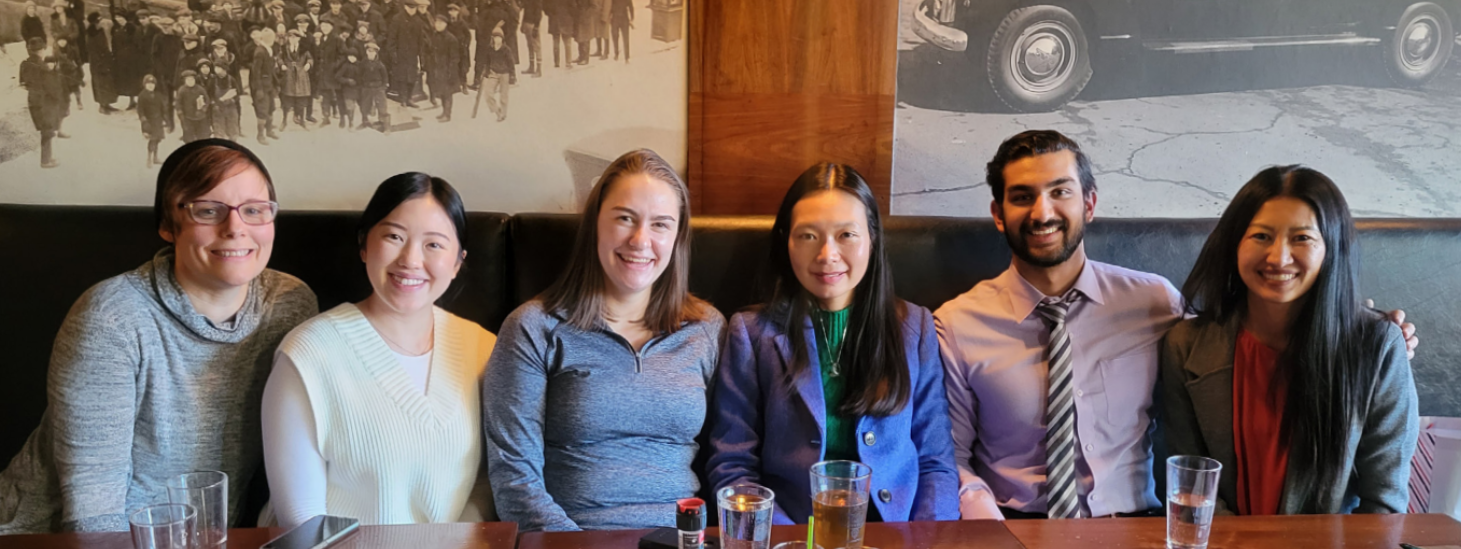
This patient-centric perspective has served as the catalyst for her proposed study, which aims to investigate the impact of holistic support interventions on physical function and overall recovery trajectories.
As of April 2024, the PCORI grant funding is in review, yet Dr. Nguyen is far from idle while awaiting its outcome. In September 2023, she secured an R34 grant from the National Institutes of Health (NIH) and has since devoted her energy outside of her clinical practice to developing the associated project with a dedicated team—a team that includes a patient co-investigator who has played a vital role in shaping the project’s protocol, particularly in areas like patient enrollment and post-operative follow-up.
With this R34 grant, Nguyen has assembled a team of stakeholders and healthcare providers in the NorthStar Trauma Network to develop a research project aimed at evaluating the efficacy of arthroscopic-assisted tibial plateau fixation (AATPF) in comparison to the conventional open reduction internal fixation (ORIF) method. The ultimate goal of this project is to conduct a multicenter randomized controlled trial to test the hypothesis that the minimally invasive tibial plateau procedure provides better patient-reported, clinical, and radiographic outcomes compared to the traditional ORIF method.
Nguyen and her patient co-investigator traveled to Baltimore in early 2024 to engage in candid conversation about the research project with a group of investigators and patients. This initiative allowed them to gain insight into the challenges that others have faced in their own trials and receive both patient and healthcare provider feedback to better support Nguyen’s trial design set to commence in 2025.
It Takes a Village
For those unfamiliar with the complexities of research, a common misconception is that it’s merely a matter of assembling a team, securing funding, and launching into a project. However, those involved in research understand all too well that the process is far from simplistic; it demands a concentrated, sustained effort that can span years of development and data collection.
In the words of Dr. Nguyen, “Doing good research nowadays takes a village.”
Gone are the days when research could be conducted in isolation; in today’s landscape, success hinges on extensive collaboration. For large-scale grants, the involvement of a substantial team is almost a given. From Nguyen’s perspective, it’s not uncommon to have upwards of twenty individuals contributing their skills and knowledge to bring a project to fruition. Every facet of the proposed study undergoes rigorous scrutiny from these team members, with details meticulously ironed out through multiple rounds of review. This collaborative process ensures that the research is robust, comprehensive, and poised to make a meaningful impact.
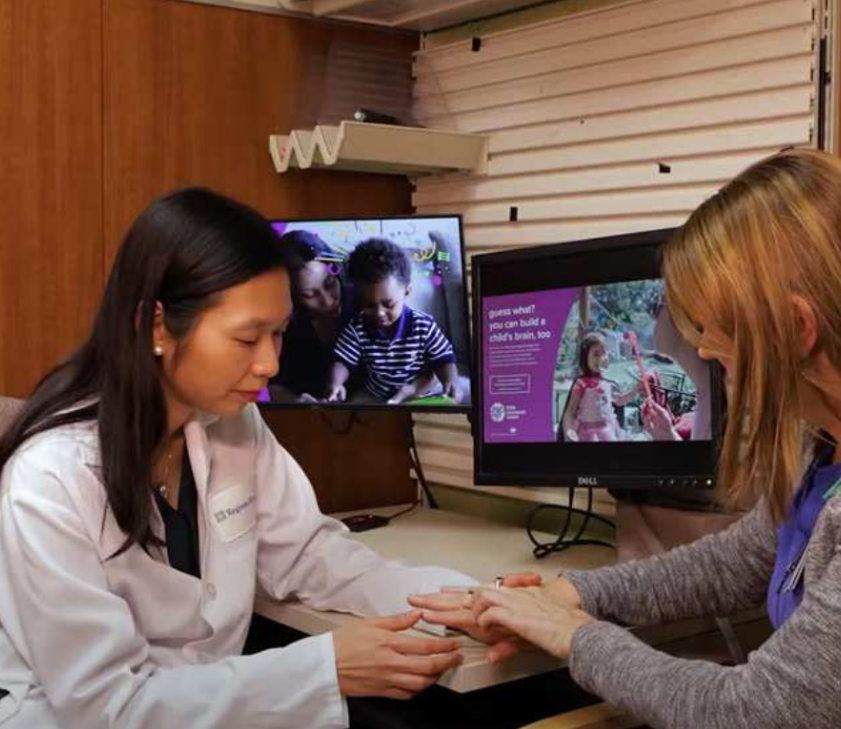
Yet, it’s not merely about the scientific inquiry itself. Modern research recognizes the importance of engaging stakeholders who stand to be influenced by the findings. This includes not only the conceptualization of the research but also its practical implementation. Involving stakeholders such as hospital administrators, chief medical officers, chief nursing officers, and other relevant parties ensures that every aspect of a care plan is considered.
Just Getting Started
As Dr. Nguyen reflects on her professional journey thus far, she finds herself invigorated by the possibilities of research, noting the proliferation of new technologies and the evolving expectations of patients compared to a decade or two ago.
For those embarking on their own research endeavors, especially those early on in their medical education, Nguyen asserts that research can be super rewarding, highlighting the exponential impact that even modest investigations can yield. Beyond the direct benefits to patients, she underscores the domino effect that research can have, empowering clinicians to better address the conditions they encounter in their practice.
Yet, amidst the excitement of innovation and discovery, Nguyen remains grounded in her commitment to patient-centered research.
“Research doesn’t have to be fancy,” she insists, advocating for a conscious approach that prioritizes the voices and needs of patients above all else.
As Dr. Nguyen looks toward the future, she sees endless possibilities for exploration and impact. With each step forward, she remains resolute in her belief that research is not just a journey but a boundless adventure— one in which the search for knowledge intertwines with the pursuit of better health outcomes for all. And for her, this is just the beginning.
